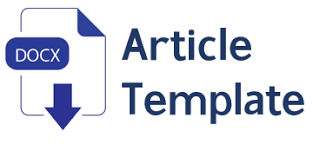Policy Narrative Analyst: Death Penalty for Drug Convicts in Indonesia
Keywords:
death penalty;, narcotics;, public policy;, policy narrative analysis;, indonesiaAbstract
The death penalty policy for drug convicts is still controversial in Indonesia. The purpose of the article is to analyze the narrative developed by the government on the death penalty policy for drug convicts in Indonesia, analyze various obstacles to the death penalty policy narrative and recommend alternative policy innovation strategies that can be chosen in following up the death penalty policy for drug convicts in the future. The analysis was carried out using the Narrative Policy Analysis (NPA) method at the meso level. Data is sourced from various trusted online news from 2015-2022. Conclusions were obtained: 1) The death penalty policy for drug convicts is carried out as an effort by the state to protect the public from the effects of drug abuse and illicit circulation. 2) The controversy over the implementation of the policy is due to differences in definitions of human rights restrictions and definitions of drug crimes as the most serious crimes and the absence of empirical studies on the effectiveness of the application of the death penalty with drug problems. 3) The need for an empirical study of the effectiveness of the death penalty and a redefinition of human rights restrictions and the most serious crimes punishable by death.
Published
Issue
Section
Copyright (c) 2023 Christiana Simatupang, Arthur Josias Simon Runturambi, Benny Jozua Mamoto, Benny Jozua Mamoto, Palupi Lindiasari Samputra

This work is licensed under a Creative Commons Attribution-ShareAlike 4.0 International License.
Authors who publish with this journal agree to the following terms:
- Authors retain copyright and grant the journal right of first publication with the work simultaneously licensed under a Creative Commons Attribution-ShareAlike 4.0 International. that allows others to share the work with an acknowledgment of the work's authorship and initial publication in this journal.
- Authors are able to enter into separate, additional contractual arrangements for the non-exclusive distribution of the journal's published version of the work (e.g., post it to an institutional repository or publish it in a book), with an acknowledgment of its initial publication in this journal.
- Authors are permitted and encouraged to post their work online (e.g., in institutional repositories or on their website) prior to and during the submission process, as it can lead to productive exchanges, as well as earlier and greater citation of published work.




